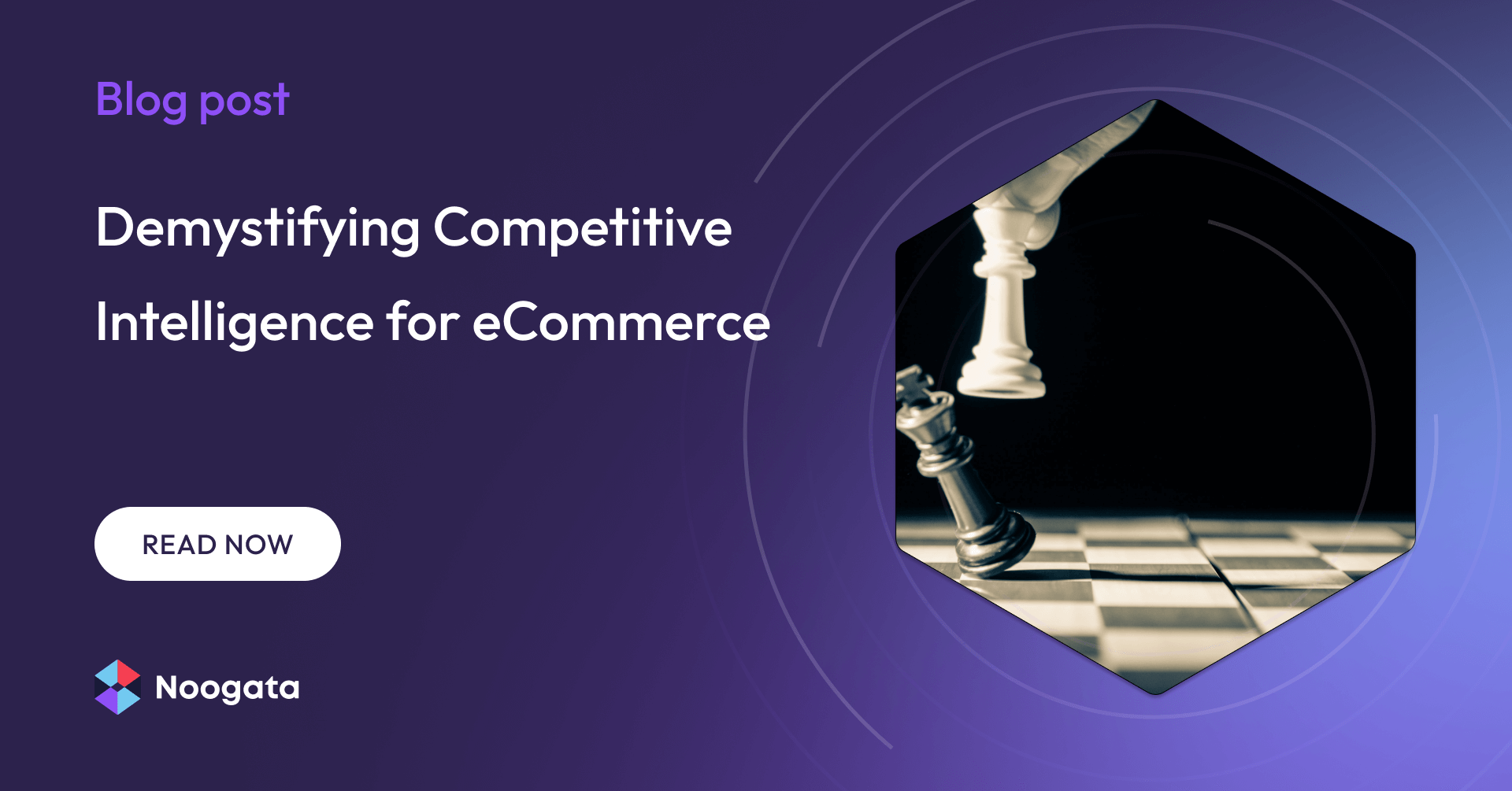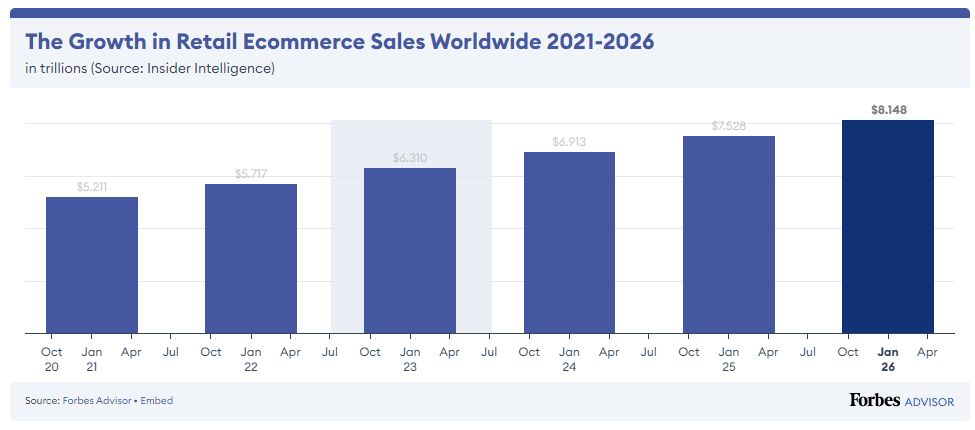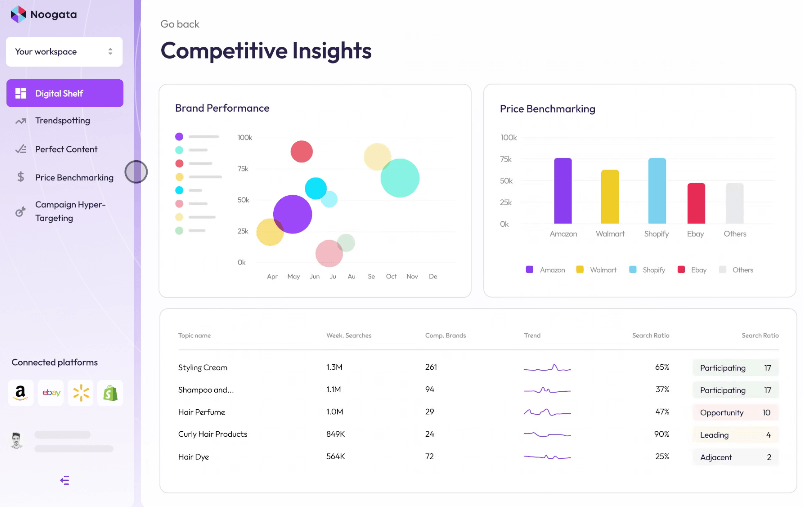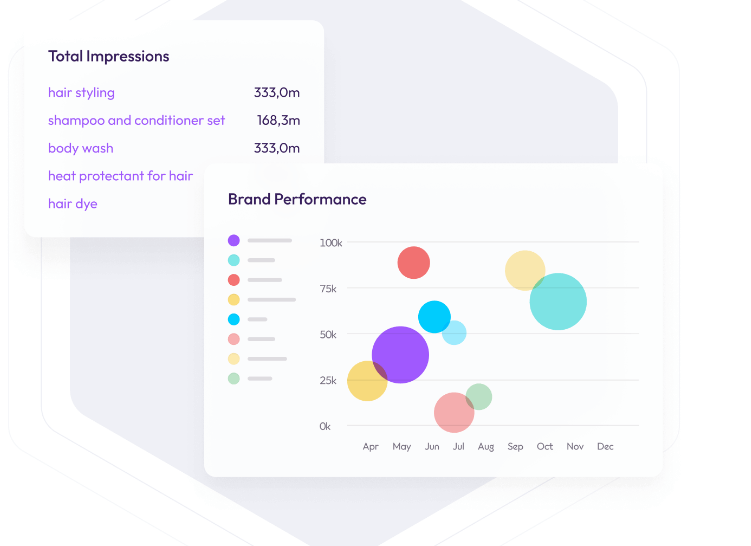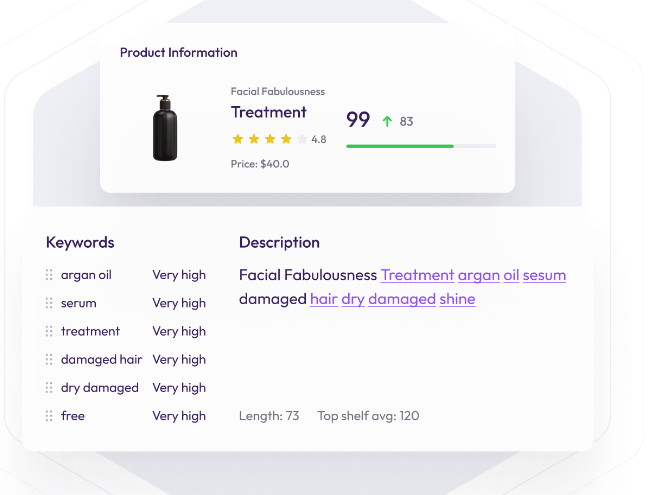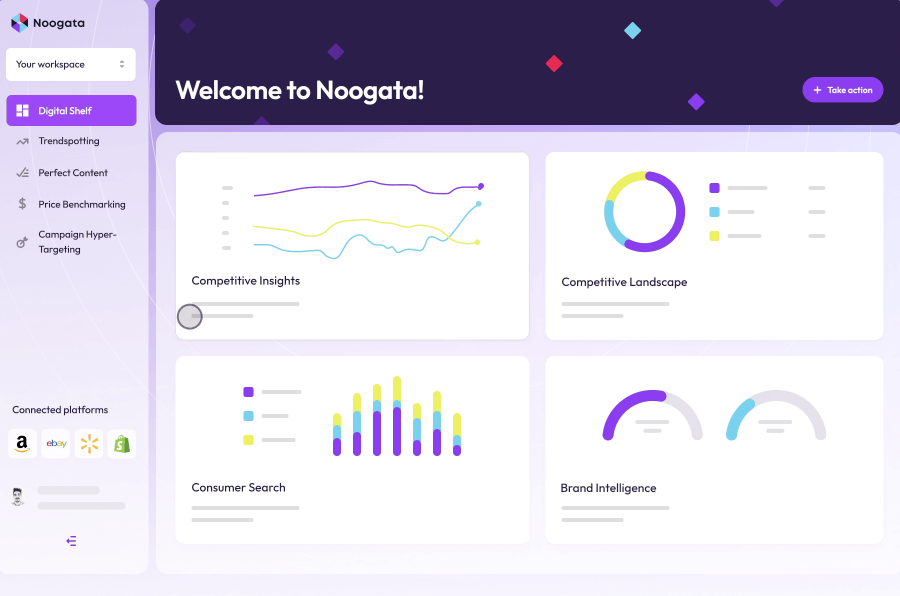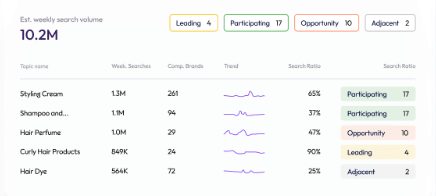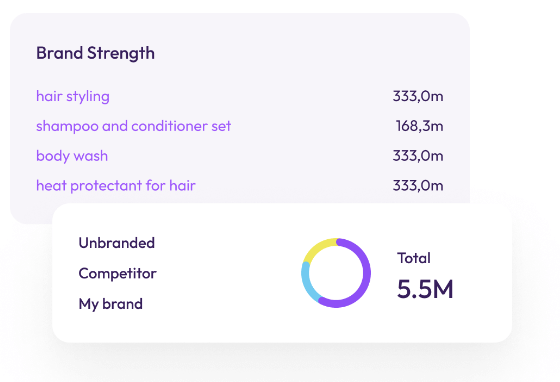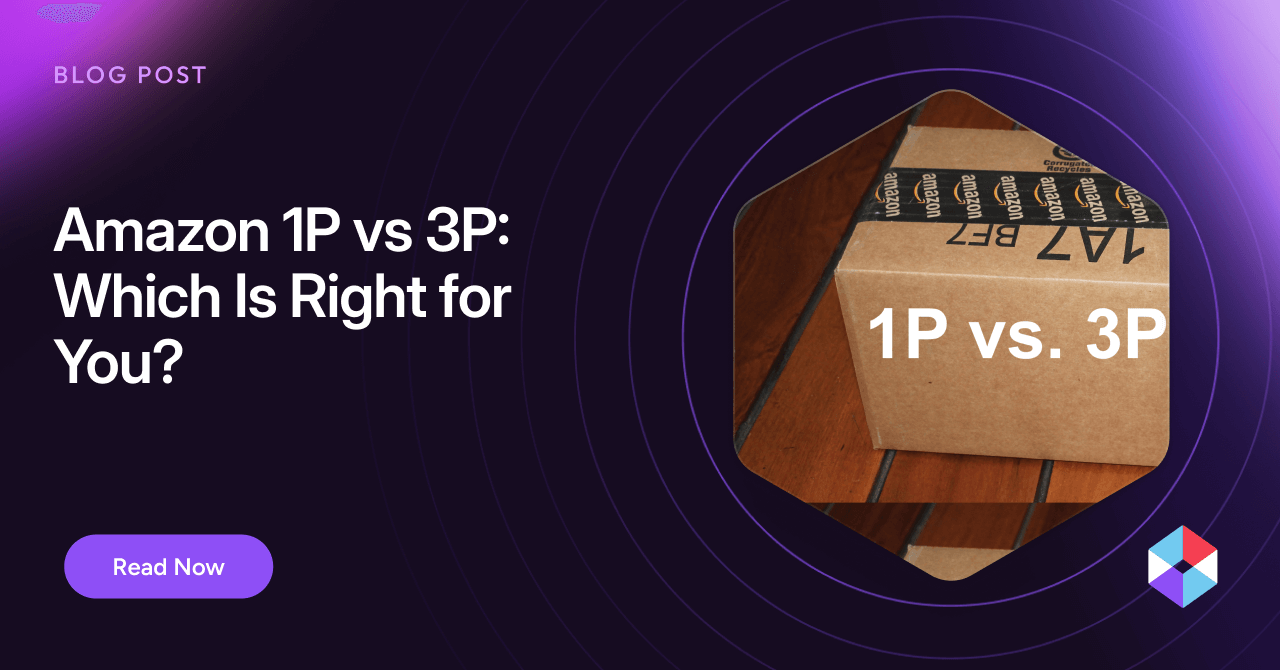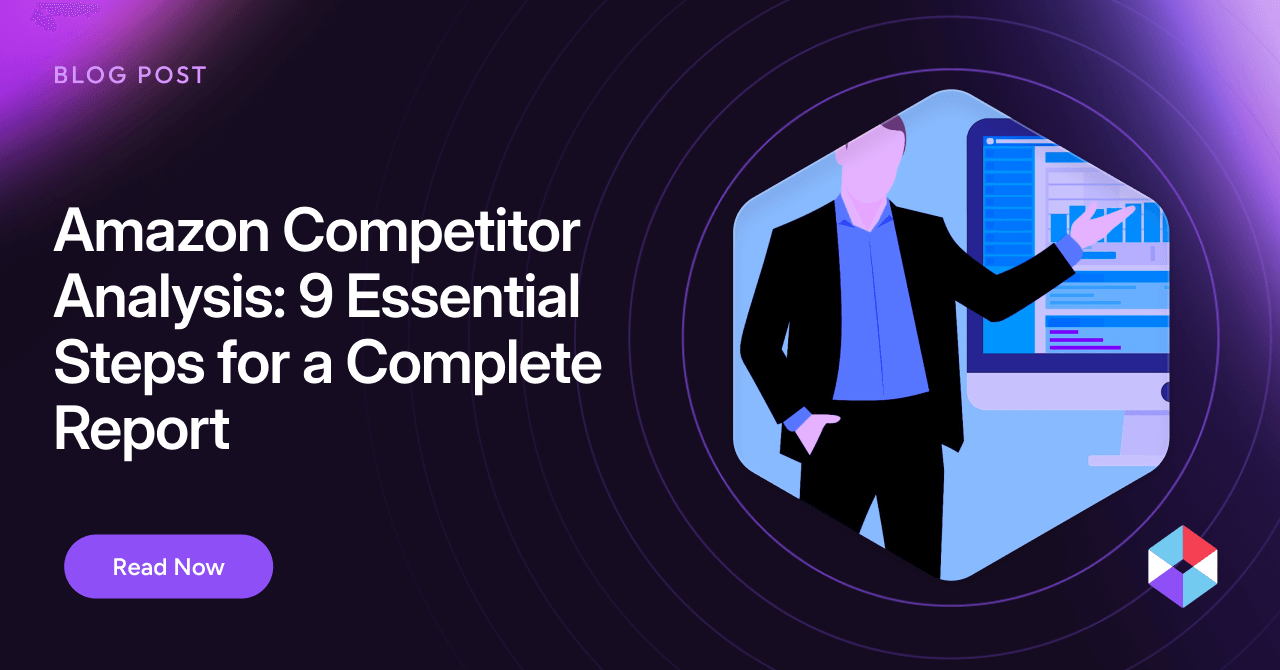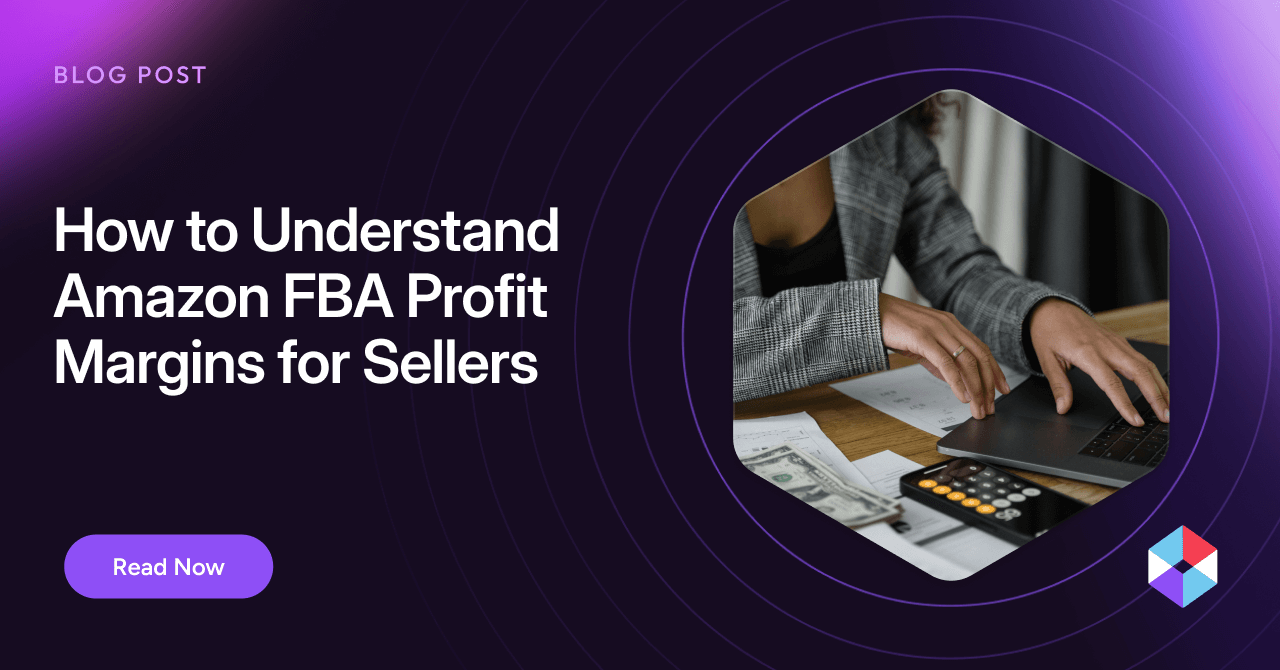By 2024, experts predict the eCommerce industry to reach sales of almost $7 trillion globally. But even with the tremendous growth forecasted, competition is fierce, with new players entering the market every day.
How can your eCommerce business keep up with constantly evolving market trends, consumer needs, new marketplaces, technologies, and of course, your competition?
The answer is competitive intelligence. More than just a business buzzword, competitive intelligence data is the difference-maker for eCommerce businesses fighting to get ahead and win on platforms like Amazon and Walmart.
But what exactly is competitive intelligence, who is it for, and how does it work?
This post will demystify competitive intelligence for eCommerce by explaining everything you need to know, including how it benefits eCommerce teams and how you can use it to gain an edge in your marketplace.
What is competitive intelligence for eCommerce?
Competitive intelligence (CI) is the process of gathering and analyzing information about your competitors ethically and legitimately to improve your future eCommerce strategy.
The CI that you conduct for any part of your organization includes three phases:
- Mapping and monitoring your competitive landscape – Connect, monitor, and automate eCommerce data into one powerful platform that fits your existing tech stack and evolving competitive landscape.
- Transforming data into competitive intelligence – Gather raw data from AI and machine learning algorithms to generate predictions, recommendations, and competitive insights.
- Taking action and boosting performance – Enable your team to use tools and reports that allow your eCommerce team to make intelligent decisions that impact eCommerce ROI.
Here are a few examples of how CI drives ROI across your entire marketing portfolio:
- Adjusting your advertising cost of sales (ACoS) to win against core competitors
- Optimizing your product listing content to improve exposure
- Capturing opportunities in product trends and keywords in real-time
- Being alerted to significant changes from competitors impacting product categories
Why is competitive intelligence for eCommerce so important?
Competition in eCommerce is fierce, with new players entering the market every day. CI offers a way to get a leg up on the competition, but it needs to be done continuously as the competition and industry rapidly evolve.
With the right technology, and routine, CI gives your organization a clear advantage by allowing you to understand your eCommerce landscape, refine your marketing strategy, predict the next moves of your competition, and determine your organization’s direction.
On a tactical level, here’s how CI puts you in the driver’s seat:
| How CI Helps eCommerce Businesses at a Tactical Level | |
| Pricing | Analyze competing product pricing in real-time to position your product catalog competitively. |
| Search Trends | Discover the latest search trends your customers are searching for, seasonal patterns affecting search volume and key search terms, which competing brands are getting the most traction, and which products are winning in the most important searches. |
| Product Content | Evaluate and update product content to drive better impact and understand which products have higher potential for sales growth |
| Ad Performance | Understand how to optimize your advertising spend and bids for more effective budgeting and maximizes ROAS |
Who in your organization is eCommerce competitive intelligence for?
Multiple teams in large consumer brands selling high volumes of goods across different platforms can leverage data for effective management and decision-making. Competitive intelligence tools can help solve these challenges across your organization.
Competitive intelligence for executives and management
At the executive level, CI helps with strategic decision-making. When executives can leverage data to get an objective view of market share and assess the impact of marketing programs or the potential of entering into new product categories or markets, they can make better and more informed decisions. At the line management level, CI helps make tactics such as optimizing campaign returns, launching new products, and tracking the competitive landscape more effective.
Competitive intelligence for marketing
Marketing teams can use CI effectively to stay up on the competition’s latest shift in product messaging and positioning—and make adjustments to theirs as soon as possible. CI also helps measure market share by evaluating branded versus unbranded search, keywords competitors successfully advertise on, and organic versus paid search performance, giving teams the ability to optimize strategies and outperform online.
Competitive intelligence for sales
Sales reps can use CI to understand the exact unique value propositions (UVPs) your product or service offers your customers. That information can then be translated to battlecards or other sales enablement material for the sales team to use for specific questions your prospects might have. When the sales team can properly communicate those UVPs to your prospects, it means more sales for your organization.
Competitive intelligence for product management
Product teams are ultimately responsible for a deep understanding of customer needs, the different options available in the market that answer those needs, and how your product or service can deliver more value than other solutions. They can use CI to gather this information by discovering the features and products their competitors are planning to release and capturing opportunities in product trends.
Competitive intelligence for customer success
In such a competitive marketplace, customer success (CS) reps must be prepared in advance when a customer mentions the possibility of exploring the competitor’s solutions. Proper CI and preparation beforehand enable CS reps to communicate why your product or service is the best solution for these prospects.
Where does eCommerce competitive intelligence come from?
You can conduct your competitive intelligence by looking at both open and public sources, such as:
- Company websites that communicate changes in strategy or product positioning
- Asking for a demo of their product to see how their sales team works
- Stay informed of job openings that indicate plans to create a new product or category
- Press releases announcing important new hires, products, or opening offices in a new region
- User groups on Reddit, Quora, Facebook
- SEO tools that compare your SEO strategy and results against your competitors
- Annual reports, balance sheets, and monthly decks published by the competition or third-parties
Software tools such as Noogata take competitive intelligence a step further by collecting, analyzing, and generating insights from competitor data across the eCommerce landscape so that you can apply these insights to help your business grow.
3 Steps for Competitive Intelligence that Lead to eCommerce Success
With the proper steps, eCommerce companies can use and apply CI to strengthen their brand and increase sales and ROI, gaining ground over their competition.
1. Gather data to study the competition
When studying the competition in the eCommerce landscape, data is spread over multiple platforms (Google, Facebook) and marketplaces (Amazon, Walmart), making it challenging to gather and analyze. Noogata unifies the data from different advertising platforms, CRMs, and marketplaces to apply learning models, enrich the data, generate predictions and deliver powerful insights through its dashboards so that your eCommerce team can take action.
2. Align your competitive strategies with the complex shopper’s journey
Your customers have a complex buyer journey that includes many platforms and marketplaces, advertising, and organic search opportunities. You’ll need to understand exactly how much visibility the competition has on each SERP component by measuring their spending on organic, sponsored, text ads, and product recommendations/upsells.
Noogata highlights the latest search trends and discovers opportunities for new paid and organic search terms to help you align your competitive strategies.
3. Leverage insights for improved conversions
Use the information you’ve gathered about pricing, ad benchmarking, search marketing, website, and UX experience of your competition to offer an improved online shopping experience. Offer competitive pricing, optimize product content, adjust ad spending, and increase ad exposure and sales in real-time.
Noogata leverages improved conversions across the digital shelf by discovering competing brands, monitoring market share, tracking paid and organic exposure down to the individual SKU level, and uncovering key search trends and categories that drive conversion.
Unlock Competitive Intelligence to Unleash eCommerce Growth
Competitive intelligence is critical to the success of any eCommerce venture. Sourcing the right data and extracting actionable insights is the difference between being just another eCommerce seller and being a category leader. But the process of getting correct competitive intelligence can be challenging.
As eCommerce companies scale, data becomes siloed, making it impossible to connect the dots to gain insights into your competition. Without a single point of truth, KPIs can’t be tracked to identify growth opportunities. Fortunately, competitive intelligence tools like Noogata are ready to fill the void with access to high-performance that makes a difference.
Noogata’s solution simplifies competitive intelligence to produce actionable insights so your eCommerce team can win more business, stay ahead of competitors, and unleash eCommerce growth.
Ready to take action? Book a demo with Noogata today.
